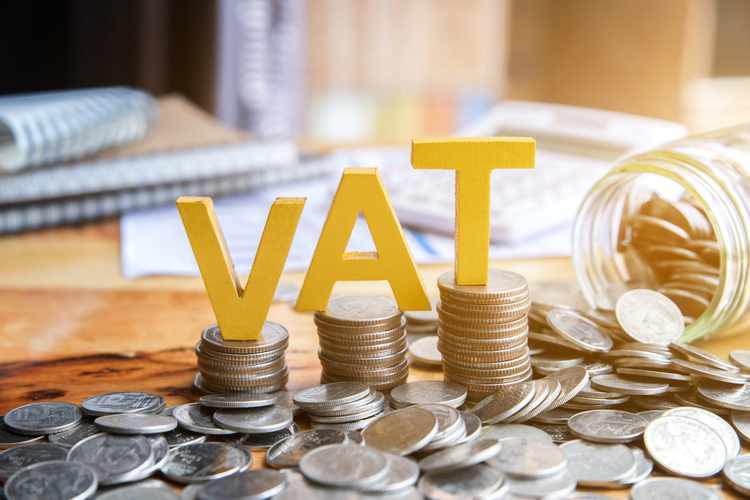Governments all around the world apply new orders and laws, the public opinion is usually divided between those who are against and others who are with. Governments are always looking for indications of the public opinion other than traditional media. However, how will the government ever know what citizens are thinking? What is their opinion about the new laws? What is the core of their complaints?
Regular citizens and activists are very active and present on different social media platforms. Hence, there’s an ecosystem where all of them are in the same place, and often writing about the same trends. Social media listening takes advantage of all the content published on different platforms to get the results that would naturally come from referenda or surveys. We did our part in monitoring what Saudi and Emirati users are saying about the application of the Value Added Tax, given that residents of both countries were never used to pay the VAT.
The example of the VAT tax perfectly serves to monitor the public opinion for governments and governmental entities to monitor citizens’ public opinion and reactions. Consequently, these entities might take into consideration applying some modifications on their orders to minimize any alerting signs that might challenge the security of the nation.
At Crowd Analyzer, we are very interested in knowing what people think. We already conducted research on several matters that reflect that may stimulate the public opinion, such as allowing Saudi women to drive. Such changes in laws always drive us to get more insights and even retrieving historical data. Therefore, we took advantage of our tool’s ability to accurately analyze online content in English and different Arabic dialects to know what would have remained inaccurate or unknown.
Governments & Social Media
The experience of governments and social media has been evolving across the region. In previous stories we wrote, we discovered that many official entities often use social media platforms to receive complaints and reach out to citizens. It looks like a proactive response to the rise of citizen journalism, and keep pace with the nations.
Gladly, governments in the Middle East started adjusting their strategies to include social media. Which is very evident in the attitude of the users and the content they publish. Users started to use social media in order to reach out to government officials and express their opinion freely. The General Authority of Zakat and Tax in Saudi Arabia took a step further to educate citizens about the VAT by creating an account specifically for the tax.
يمكنكم الآن تحميل تطبيق ضريبة القيمة المضافة، والذي يقدم للمستخدمين العديد من المزايا. pic.twitter.com/xy8rfl19NF
— ضريبة القيمة المضافة (@saudivat) December 29, 2017
VAT in Saudi Arabia and UAE
We monitored the reactions of everyone in the MENA region when the VAT was applied in Saudi Arabia and UAE. The residents of both countries showed a variety of different sentiments regarding the new tax. We monitored more than 207K activities over the span of one week, to notice that users from Saudi Arabia were more reactive than users from UAE. You would assume that the difference between the demographics of both countries is the reason behind this lag, yet the sentiment and content showed more to this story.
UAE Users barely created a buzz
The nature of tweets and content published about the VAT from UAE was a bit more informative than opinionated. So we say that people were more involved in spreading information about the new tax rather than oppose it. Since UAE users only contributed to 4% of the whole buzz, this means that the people aren’t as occupied with the VAT as Saudi users are.
لتعم الفائدة
ما هي المواد المعفاه من الضريبة ؟ pic.twitter.com/GaXFlUkoFo— بن عبـلان (@Binablan) January 1, 2018
We did not come across any trending hashtags related to the VAT, which makes the case different compared to Saudi users who created a hashtag opposing the VAT, you will read about this in seconds.
VAT in KSA
Since 96% of the buzz was generated from Saudi Arabia, we were given a bigger space to analyze the content deeply, and further understand how individuals and businesses reacted to the application of the new tax.
Individuals in KSA
The vast majority of users complained about their salaries. More than 30% of tweets from Saudi Arabia mentioned a variation of the word “Salary”.
What added to the opposition is the increase in prices of electricity, water, and gas. These essentials that no one can live without added to the burden of the tax since salaries didn’t increase much or at all.
اقسم بالله نحب الوطن وعندنا ولاء ولكن نكتب بعض السطور وننتظر الرد
١-الكهرب كانت الفاتورة300وبتصير1000
٢-الماء كانت الفاتورة 5ريال وبتصير300
٣-البنزين اللي كان يفلل ب40يبي يفلل الحين ب130٥-إلغاء علاوتين !
٦- وضع الضرائب
هل نستحق ذلك ياوطني الحبيب ؟
— بدر ال… (@Bader_Ov) January 1, 2018
Others expressed their dissatisfaction with the officials and their statements, while still highlighting the previous struggles of the average Saudi citizens.
الضحك انه يقول حساب المواطن يغطي ارتفاع الكهربا والبنزين والضريبه المضافه ياخي شوية احترام للشعب #اسال_وزير_الماليه
— A (@asdf_adelll) January 3, 2018
Others started reporting about stores and products that applied increases over the amount of the VAT. Proactive users asked the authorities to look into these new prices and get them back to their normal range.
دانكن دونات رفعت السعر ضعفي ضريبة القيمة المضافة، اتمنى استدعاء إدارتها من قبل وزارة التجارة وإعادة الأسعار لمستواها الطبيعي+الضريبة فقط https://t.co/0NZmUJ6L1s
— د.عبدالله بن ربيعان (@Dr_ibnrubbian) January 1, 2018
Did any users support the application of the VAT?
Yes. Some users expressed their trust in the authorities. Although they aren’t the majority, some indeed wanted to oppose the opposing majority that was criticizing the government for all the recent orders and increases.
المواطن أصبح مصدر الدخل الثاني في السعودية بعد النفط ولكنه مايزال مصدر الدخل الأول في معظم الدول المتقدمة فهو يدفع الضرائب مقابل توفير الخدمات الأساسية كالتعليم والصحة والبنى التحتية. وهذا بمثابة عقد اجتماعي لادخل له بالحكومات التي تأتي وتذهب وتتغير بعد كل انتخابات#فهد_الأحمدي pic.twitter.com/MpCSNc7Rdy
— فهد عامر الأحمدي (@fahadalahmdi) January 5, 2018
The claims were more about highlighting that these changes are for the best of the whole nation, or in the long run. Others claimed that opposing opinions are fueled by foreign or neighbouring countries.
هناك من يريد استغلال رفع اسعار البنزين والضريبة المضافة لاغراض خبيثة في نفسه وقد يدخل ع الخط مخابرات دول للهدف نفسه
يجب الحذر منهمتاكدوا
بان قيادتنا تعمل جاهده وحريصة على مواطنيها اكثر من الاخرين ولن ترضى باي ضرر لهم— طيار ركن KSA (@Alkhaldi990990) December 31, 2017
Some users shared neutral tweets tips on how to deal with the VAT. Most of these tweets were highlighting some of the defaults that lead the people to be less receptive to the VAT, such as not being economical.
#نصايح_للتعايش_مع_الضريبه :
-“ربوا أبنائكم لزمانهم لا لزمانكم”
-” أشعروا الجميع بالمسؤولية”
-“ما افتقر من اقتصد”
-” أعيدوا الحياة الكاملة لمطبخ البيت”
-“لا تُقتِّروا على أهلكم ولا تُسرفوا”
-“تفائلوا بالخير”
-“علق قلبك بالرازق سبحانه وقل دوماً: اللهم أغننا بحلالك عن حرامك”.— د. صبحي العطوي (@AlatwiS) January 1, 2018
How did businesses clear their position?
Businesses had their share of attack. Many users claimed that supermarkets and shops have been doubling the amount of tax just to gain more money. In order to absorb the anger of the nation, shops started to clarify their position even more.
What does all of this mean?
People aren’t pleased with all with the application of the VAT since the negative sentiment composed more than 54% of sentimental content is negative. Some might see these insights as an expected wave of rage against the new tax. Meanwhile, others will see it as an indicator of numerous problems that people are struggling with and could trigger political issues that aren’t directly related to the VAT.
عند اعتراضك على رفع الأسعار والضرائب يذكرونك بأوربا
وعند مطالبتك بحقوقك يذكرونك بسوريا والعراق وليبيا !!
.#العاطل_كيف_يعيش#الراتب_مايكفي_الحاجه4— تركي الشلهوب (@TurkiShalhoub) January 3, 2018


























